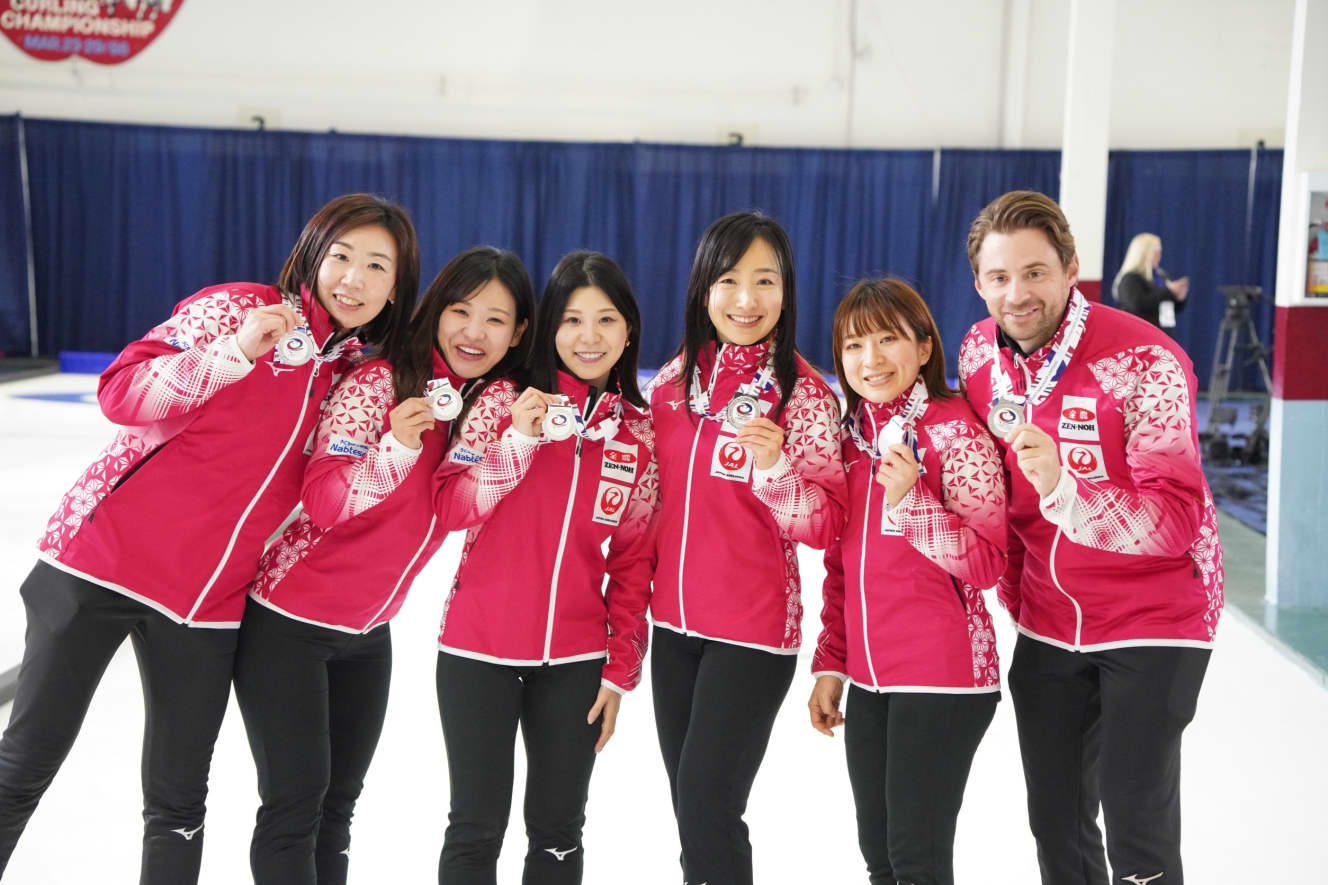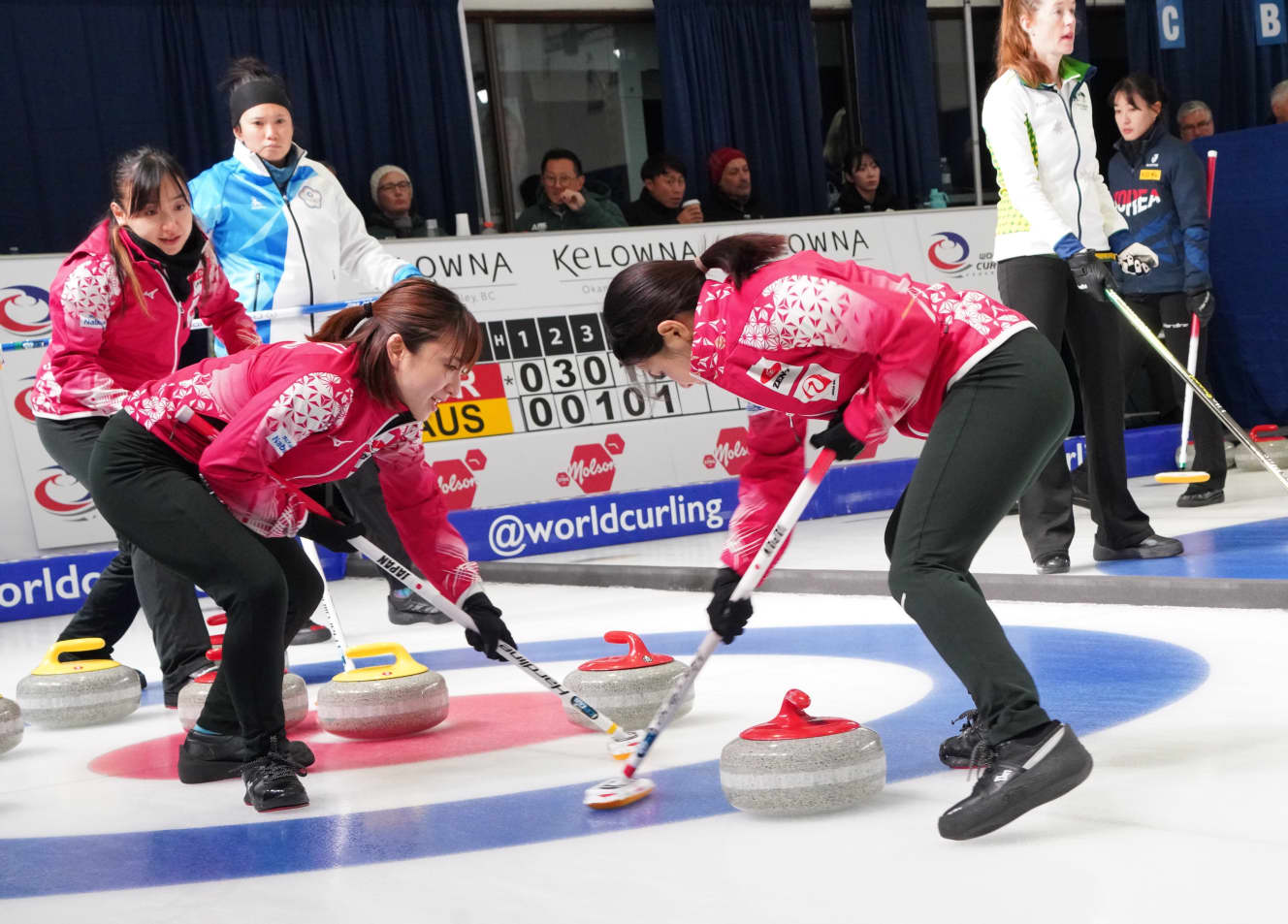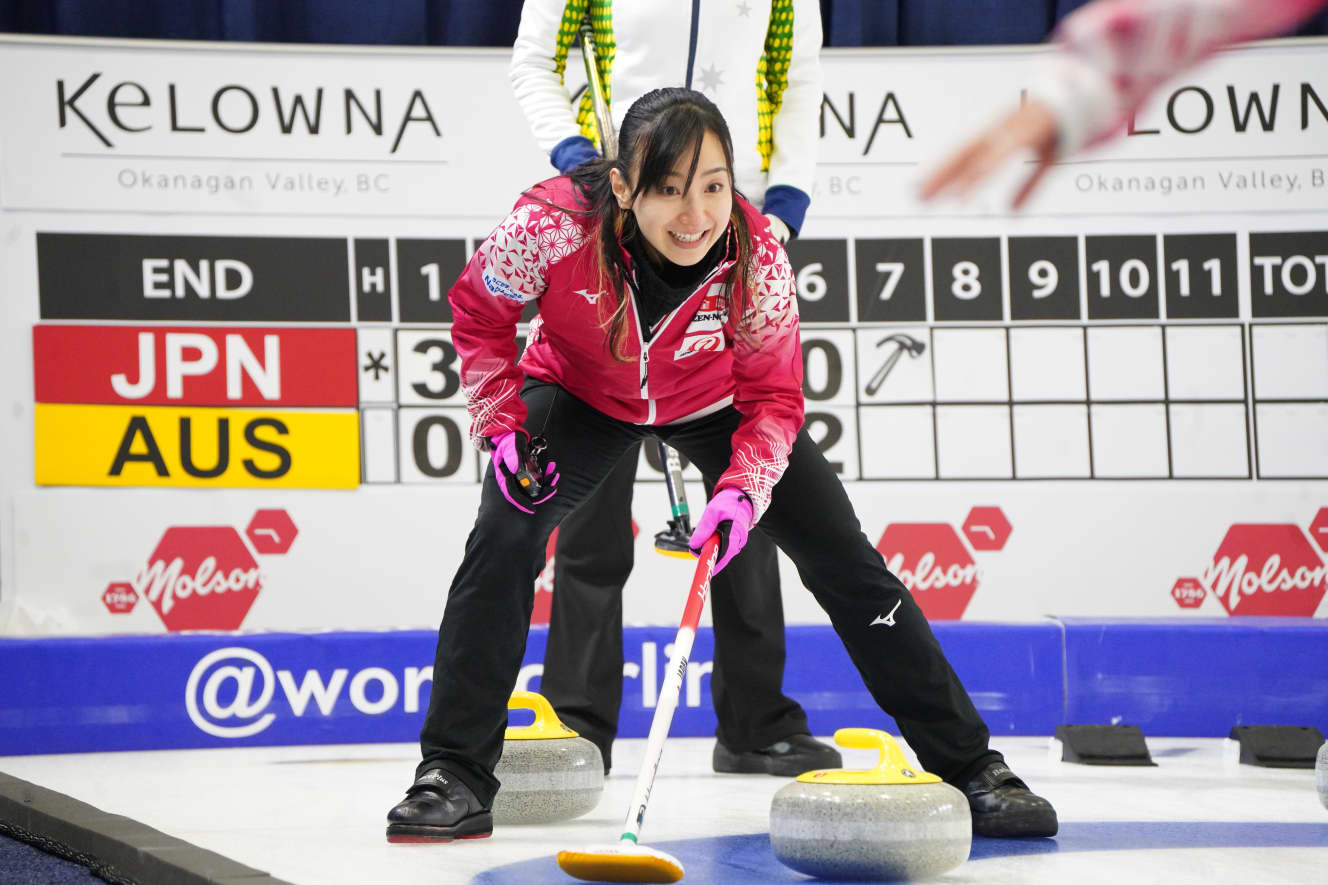Crackers, throat lozenges, gummies, and books……The “wants” and “change of heart” of the women’s curling team that traveled to Canada
Contributed by Soichiro Takeda, who closely followed Japan's curling team on the field.

In late October, I contacted Rocco Solare.
The girls had chosen the “Advics Cup” in their hometown of Tokoro-cho, Kitami, in August as their opening tournament of the season, and upon winning there, they would depart for Canada in early September, with a schedule that would take them to six different cities before returning home temporarily in November.
One of those six was the Pan Continental Championships (“PCCC”) held in Kelowna from October 29 to November 4. The girls will be representing Japan. I was able to interview them there. At that point, they had been out of Japan for about two months. Like many expatriates and long-term travelers, they might be hungry for Japanese flavors and entertainment, so I wanted to offer something to them.
The five players’ responses varied.
The first to respond immediately was Chinami Yoshida.
A rice cracker! I like the orthodox soy-sauce flavored ones that are usually sold at convenience stores and supermarkets.”
The next player was Izuki Fujisawa.
I want throat lozenges. Also, if there is room in my luggage, a stick-on body warmer would be helpful.
It is naturally cold in the curling hall. Fujisawa, who does not sweep, feels especially cold. Since lighter and thinner would be better, he brought along some “Haru On Pax Airy” from Estee and stuck it on his neck, back, waist, and abdomen, respectively, as he took on the game.
After taking some time to think about it, Yuko Suzuki contacted me. She seemed to be into Pikmin and specified “Pikmin Mascot & Fruit Gummies,” a mascot with a ball chain. However, it was a popular product, and even though it was re-released, it was still in short supply. Understanding this, she took a two-step approach, saying, “If you don’t have it, I would like to buy ‘Ore no Milk’ candy” and specifying a Nobel Confectionery’s top-selling product.
It seems that although gummy candies and chocolates are abundant in Canada, sticky candies similar to caramels, rather than hard candies like in Japan, are the mainstream. He also provided us with a nice tidbit for our reporter, saying that he had missed the PCCC tournament due to back pain, but that he had almost recovered.
He spent a little more time than Suzuki, saying, “I want to read a book. If I can be selfish, I would be happy with an easy-to-carry paperback book,” said Yurika Yoshida.
Since the choice was left entirely up to me, I actually had a hard time deciding, but I chose the timeless classic “Kitchen” (Kadokawa Bunko/ Banana Yoshimoto) and “Arrogance and Goodness” (Asahi Bunko) by one of the most popular women writers of the season, Fuzuki Tsujimura. I have sent her a bunko in the past, and she has always been very conscientious in expressing her gratitude and her impressions. How was it this time?
Kotomi Ishizaki said, “I might ask her if she comes up with an idea before PCCC,” but I did not hear from her specifically afterward. Since she might be reserved due to her personality, I prepared her favorite sweet dish along with those of the trainers.

Except for Pikmin Gummi, the rest of the teams prepared well and made it to Canada. It is rare to find a team with so much individuality in a single gift. When I told this to Chikami Yoshida there, she said, “Your personality comes out too much. Except for Yuri (Yurika Yoshida), it’s food. Yuriko is a 5-year-old who wants to be a toy.
The girls’ personalities continued to show on and off the ice as they entered the competition.
The PCCC was sponsored by JA Zen-Noh, the sponsor of the Japanese team, which supported the local diet of the Japanese team competing overseas. They partnered with a restaurant in Kelowna run by a Japanese chef and owner, and delivered onigiri (rice balls) to the venue and hotel every day.
After the tournament, May Fujisawa said, “There was no inconvenience at all in terms of food. The men’s national team (SC Karuizawa Club) supported us, and Zen-Noh also came to the venue, so I think we were able to compete as Team Japan.” As she expressed her gratitude, it seems that the time spent not preparing meals was used more effectively for physical care and meetings. This was probably one of the reasons for the good performance of the men’s team, which won the bronze medal, and the women’s team, which won the silver medal.
In the middle of the competition, I asked them chatting with them, “What kind of rice ball tastes good? I asked.
Wagyu beef shigureni! (Yurika Yoshida)
Chirimen. I like the salty taste.
I like the kind that looks like takikomi-gohan (cooked rice). Chicken and go-mei” (Chinami Yoshida)
Everything is delicious, but I was also happy to have side dishes such as Sawan (herbed dumplings) and salad” (Itsuki Fujisawa)
These were again interesting and varied answers, but all four players on the ice are over 30 years old this year. Basically, they have always remained cheerful and boisterous, but in recent years, they seem to have lost their tendency to act cool, mend their appearance, or hide their emotions. Of course, he reads the air and watches the other players, and if asked or requested anything, he tells everything honestly and truthfully, not just the ingredients of his rice balls.
Even after unfortunately losing to the Korean team in the finals, I was able to pick up on her straightforward comment, “I’m still frustrated. It was mildly surprising to hear Yurika Yoshida even calmly analyze the situation, saying, “I think Korea is in a good position right now, even if we play 100%, I don’t know if we can win.
After the PCCC, the team traveled from the beautiful lakeside city of Kelowna across the North American continent to the North Atlantic seaside city of Pictou. They are now competing in the KIOTI National, one of the Grand Slams in which only the top ranked teams from the World Tour are allowed to compete. Here, he played again against Team Gim, representing Korea, but suffered a close loss.
I’m sure we’ll be playing against them again many times at Grand Slams and World Championships,” said Fujiwara. I want to be ready to play well,” said Mayuki Fujisawa after the PCCC, “but there is no way this quirky and competitive team will leave their losing streak unresolved.
In order to gain revenge at the World Championships, the girls must first win the Japan Championships, which will be held in Sapporo, Japan, in January. The World Championships will be held in March in Sydney, Canada, just at the turn of the season.
And starting this season, the Japan Championships will be a domestic race, while the World Championships will be a race for Japan to qualify for the ’26 Cortina d’Ampezzo Olympics in Milan, Italy.


Interview, text, and photos: Soichiro Takeda
Born in Kanagawa Prefecture in 1979. He has been a freelance sportswriter since 2004, based on his experience playing soccer for Bellmare Hiratsuka (now Shonan) since his childhood. He has covered mainly soccer, curling, Major League Baseball, etc. He is in charge of the composition of the book "0 to 1 wo Tsukuru Hometown de Mari Motohashi" (How to Win in the World) written by former Japan national team member Mari Motohashi, published in January 2019 (Kodansha Gendai Shinsho).